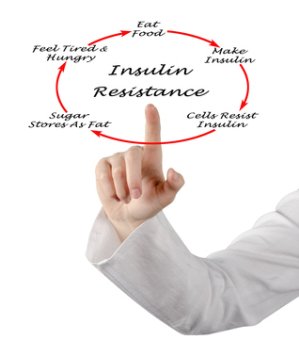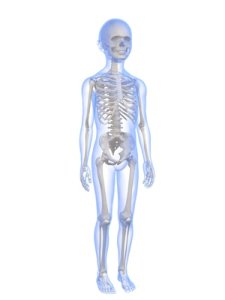afterLoad (456.27KB) (5.78ms)
afterInitialise (1.27MB) (78.82ms)
afterRoute (856.63KB) (26.29ms)
beforeRenderComponent com_content (35.67KB) (378μs)
Before Access::preloadComponents (all components) (117.8KB) (16.39ms)
After Access::preloadComponents (all components) (98.44KB) (5.6ms)
Before Access::getAssetRules (id:8 name:com_content) (1.13KB) (25μs)
After Access::getAssetRules (id:8 name:com_content) (7.05KB) (56μs)
afterRenderComponent com_content (1.27MB) (265ms)
afterDispatch (17.53KB) (4.32ms)
beforeRenderRawModule mod_articles_category (READ MORE...) (383.51KB) (28.57ms)
afterRenderRawModule mod_articles_category (READ MORE...) (84.63KB) (190ms)
beforeRenderRawModule mod_tags_popular (Search) (4.81KB) (31μs)
afterRenderRawModule mod_tags_popular (Search) (10.07KB) (194ms)
beforeRenderRawModule mod_custom (Remember to download Heart Healthy Seniors) (816B) (33μs)
afterRenderRawModule mod_custom (Remember to download Heart Healthy Seniors) (4.22KB) (2.68ms)
beforeRenderRawModule mod_custom (Get additionel and more detailed knowledge ) (752B) (28μs)
afterRenderRawModule mod_custom (Get additionel and more detailed knowledge ) (1.67KB) (45μs)
beforeRenderRawModule mod_custom (BOOST YOUR IMMUNE DEFENSE) (608B) (12μs)
afterRenderRawModule mod_custom (BOOST YOUR IMMUNE DEFENSE) (928B) (26μs)
beforeRenderRawModule mod_custom (Are you taking supplements) (736B) (10μs)
afterRenderRawModule mod_custom (Are you taking supplements) (1.03KB) (21μs)
beforeRenderRawModule mod_custom (Antiaging) (720B) (8μs)
afterRenderRawModule mod_custom (Antiaging) (1.02KB) (19μs)
beforeRenderRawModule mod_custom (Exercise) (720B) (9μs)
afterRenderRawModule mod_custom (Exercise) (1.02KB) (18μs)
beforeRenderRawModule mod_custom (Check this before you buy a Q10 product) (752B) (9μs)
afterRenderRawModule mod_custom (Check this before you buy a Q10 product) (944B) (19μs)
beforeRenderRawModule mod_custom (Chronic fatigue tied Alan to his bed but Q10 capsules saved him:) (260.6KB) (12.2ms)
afterRenderRawModule mod_custom (Chronic fatigue tied Alan to his bed but Q10 capsules saved him:) (960B) (97μs)
beforeRenderModule mod_custom (Chronic fatigue tied Alan to his bed but Q10 capsules saved him:) (768B) (6μs)
afterRenderModule mod_custom (Chronic fatigue tied Alan to his bed but Q10 capsules saved him:) (1.3KB) (70μs)
beforeRenderRawModule mod_custom (Cholesterol-lowering without side effects:) (368B) (19μs)
afterRenderRawModule mod_custom (Cholesterol-lowering without side effects:) (2.19KB) (27μs)
beforeRenderModule mod_custom (Cholesterol-lowering without side effects:) (752B) (2μs)
afterRenderModule mod_custom (Cholesterol-lowering without side effects:) (1.28KB) (29μs)
beforeRenderModule mod_articles_category (READ MORE...) (21.32KB) (427μs)
afterRenderModule mod_articles_category (READ MORE...) (1.25KB) (53μs)
beforeRenderModule mod_tags_popular (Search) (5.17KB) (19μs)
afterRenderModule mod_tags_popular (Search) (1.27KB) (25μs)
beforeRenderModule mod_custom (Remember to download Heart Healthy Seniors) (1.17KB) (11μs)
afterRenderModule mod_custom (Remember to download Heart Healthy Seniors) (1.3KB) (22μs)
beforeRenderModule mod_custom (Get additionel and more detailed knowledge ) (368B) (9μs)
afterRenderModule mod_custom (Get additionel and more detailed knowledge ) (1.3KB) (20μs)
beforeRenderModule mod_custom (BOOST YOUR IMMUNE DEFENSE) (224B) (9μs)
afterRenderModule mod_custom (BOOST YOUR IMMUNE DEFENSE) (1.28KB) (20μs)
beforeRenderModule mod_custom (Are you taking supplements) (352B) (10μs)
afterRenderModule mod_custom (Are you taking supplements) (1.28KB) (19μs)
beforeRenderModule mod_custom (Antiaging) (336B) (9μs)
afterRenderModule mod_custom (Antiaging) (1.27KB) (19μs)
beforeRenderModule mod_custom (Exercise) (336B) (9μs)
afterRenderModule mod_custom (Exercise) (1.25KB) (19μs)
beforeRenderModule mod_custom (Check this before you buy a Q10 product) (352B) (9μs)
afterRenderModule mod_custom (Check this before you buy a Q10 product) (1.28KB) (18μs)
beforeRenderRawModule mod_menu (Main menu-US) (20.94KB) (2.09ms)
afterRenderRawModule mod_menu (Main menu-US) (152.04KB) (6.79ms)
beforeRenderModule mod_menu (Main menu-US) (720B) (5μs)
afterRenderModule mod_menu (Main menu-US) (4.36KB) (71μs)
beforeRenderRawModule mod_languages (Sprogskift) (3.44KB) (23μs)
afterRenderRawModule mod_languages (Sprogskift) (32.31KB) (9.69ms)
beforeRenderModule mod_languages (Sprogskift) (720B) (8μs)
afterRenderModule mod_languages (Sprogskift) (5.31KB) (26μs)
beforeRenderRawModule mod_finder () (6.34KB) (15μs)
afterRenderRawModule mod_finder () (150.16KB) (13.29ms)
beforeRenderModule mod_finder () (704B) (7μs)
afterRenderModule mod_finder () (5.79KB) (55μs)
beforeRenderRawModule mod_custom () (6.62KB) (202μs)
afterRenderRawModule mod_custom () (26.51KB) (4.27ms)
beforeRenderModule mod_custom () (704B) (8μs)
afterRenderModule mod_custom () (1.23KB) (2.63ms)
beforeRenderRawModule mod_menu (Main menu-US) (5.07KB) (155μs)
afterRenderRawModule mod_menu (Main menu-US) (5.8KB) (741μs)
beforeRenderModule mod_menu (Main menu-US) (720B) (4μs)
afterRenderModule mod_menu (Main menu-US) (1.25KB) (3.88ms)
beforeRenderRawModule mod_languages (Sprogskift Mobil) (912B) (32μs)
afterRenderRawModule mod_languages (Sprogskift Mobil) (3.89KB) (3.32ms)
beforeRenderModule mod_languages (Sprogskift Mobil) (720B) (8μs)
afterRenderModule mod_languages (Sprogskift Mobil) (1.27KB) (41μs)
beforeRenderRawModule mod_finder () (2.3KB) (14μs)
afterRenderRawModule mod_finder () (6.29KB) (2.39ms)
beforeRenderModule mod_finder () (704B) (6μs)
afterRenderModule mod_finder () (1.23KB) (60μs)
beforeRenderRawModule mod_custom () (8.66KB) (1.58ms)
afterRenderRawModule mod_custom () (904B) (191μs)
beforeRenderModule mod_custom () (704B) (4μs)
afterRenderModule mod_custom () (2.43KB) (36μs)
beforeRenderRawModule mod_custom () (688B) (86μs)
afterRenderRawModule mod_custom () (896B) (97μs)
beforeRenderModule mod_custom () (704B) (2μs)
afterRenderModule mod_custom () (2.71KB) (23μs)
afterRender (311.96KB) (27.18ms)
| 1 x afterRenderComponent com_content (1.27MB) (29%) | 264.98ms |
| 1 x afterRenderRawModule mod_tags_popular (Search) (10.07KB) (21.25%) | 194.20ms |
| 1 x afterRenderRawModule mod_articles_category (READ MORE...) (84.63KB) (20.76%) | 189.69ms |
| 1 x afterInitialise (1.27MB) (8.63%) | 78.82ms |
| 1 x beforeRenderRawModule mod_articles_category (READ MORE...) (383.51KB) (3.13%) | 28.57ms |
| 1 x afterRender (311.96KB) (2.97%) | 27.18ms |
| 1 x afterRoute (856.63KB) (2.88%) | 26.29ms |
| 1 x Before Access::preloadComponents (all components) (117.8KB) (1.79%) | 16.39ms |
| 1 x afterRenderRawModule mod_finder () (150.16KB) (1.46%) | 13.29ms |
| 1 x beforeRenderRawModule mod_custom (Chronic fatigue tied Alan to his bed but Q10 capsules saved him:) (260.6KB) (1.34%) | 12.20ms |
| 1 x afterRenderRawModule mod_languages (Sprogskift) (32.31KB) (1.06%) | 9.69ms |
| 1 x afterRenderRawModule mod_menu (Main menu-US) (152.04KB) (0.74%) | 6.79ms |
| 1 x afterLoad (456.27KB) (0.63%) | 5.78ms |
| 1 x After Access::preloadComponents (all components) (98.44KB) (0.61%) | 5.60ms |
| 1 x afterDispatch (17.53KB) (0.47%) | 4.32ms |
| 1 x afterRenderRawModule mod_custom () (26.51KB) (0.47%) | 4.27ms |
| 1 x afterRenderModule mod_menu (Main menu-US) (1.25KB) (0.42%) | 3.88ms |
| 1 x afterRenderRawModule mod_languages (Sprogskift Mobil) (3.89KB) (0.36%) | 3.32ms |
| 1 x afterRenderRawModule mod_custom (Remember to download Heart Healthy Seniors) (4.22KB) (0.29%) | 2.68ms |
| 1 x afterRenderModule mod_custom () (1.23KB) (0.29%) | 2.63ms |
| 1 x afterRenderRawModule mod_finder () (6.29KB) (0.26%) | 2.39ms |
| 1 x beforeRenderRawModule mod_menu (Main menu-US) (20.94KB) (0.23%) | 2.09ms |
| 1 x beforeRenderRawModule mod_custom () (8.66KB) (0.17%) | 1.58ms |
| 1 x afterRenderRawModule mod_menu (Main menu-US) (5.8KB) (0.08%) | 741μs |
| 1 x beforeRenderModule mod_articles_category (READ MORE...) (21.32KB) (0.05%) | 427μs |
| 1 x beforeRenderComponent com_content (35.67KB) (0.04%) | 378μs |
| 1 x beforeRenderRawModule mod_custom () (6.62KB) (0.02%) | 202μs |
| 1 x afterRenderRawModule mod_custom () (904B) (0.02%) | 191μs |
| 1 x beforeRenderRawModule mod_menu (Main menu-US) (5.07KB) (0.02%) | 155μs |
| 1 x afterRenderRawModule mod_custom (Chronic fatigue tied Alan to his bed but Q10 capsules saved him:) (960B) (0.01%) | 97μs |
| 1 x afterRenderRawModule mod_custom () (896B) (0.01%) | 97μs |
| 1 x beforeRenderRawModule mod_custom () (688B) (0.01%) | 86μs |
| 1 x afterRenderModule mod_menu (Main menu-US) (4.36KB) (0.01%) | 71μs |
| 1 x afterRenderModule mod_custom (Chronic fatigue tied Alan to his bed but Q10 capsules saved him:) (1.3KB) (0.01%) | 70μs |
| 1 x afterRenderModule mod_finder () (1.23KB) (0.01%) | 60μs |
| 1 x After Access::getAssetRules (id:8 name:com_content) (7.05KB) (0.01%) | 56μs |
| 1 x afterRenderModule mod_finder () (5.79KB) (0.01%) | 55μs |
| 1 x afterRenderModule mod_articles_category (READ MORE...) (1.25KB) (0.01%) | 53μs |
| 1 x afterRenderRawModule mod_custom (Get additionel and more detailed knowledge ) (1.67KB) (0%) | 45μs |
| 1 x afterRenderModule mod_languages (Sprogskift Mobil) (1.27KB) (0%) | 41μs |
| 1 x afterRenderModule mod_custom () (2.43KB) (0%) | 36μs |
| 1 x beforeRenderRawModule mod_custom (Remember to download Heart Healthy Seniors) (816B) (0%) | 33μs |
| 1 x beforeRenderRawModule mod_languages (Sprogskift Mobil) (912B) (0%) | 32μs |
| 1 x beforeRenderRawModule mod_tags_popular (Search) (4.81KB) (0%) | 31μs |
| 1 x afterRenderModule mod_custom (Cholesterol-lowering without side effects:) (1.28KB) (0%) | 29μs |
| 1 x beforeRenderRawModule mod_custom (Get additionel and more detailed knowledge ) (752B) (0%) | 28μs |
| 1 x afterRenderRawModule mod_custom (Cholesterol-lowering without side effects:) (2.19KB) (0%) | 27μs |
| 1 x afterRenderRawModule mod_custom (BOOST YOUR IMMUNE DEFENSE) (928B) (0%) | 26μs |
| 1 x afterRenderModule mod_languages (Sprogskift) (5.31KB) (0%) | 26μs |
| 1 x Before Access::getAssetRules (id:8 name:com_content) (1.13KB) (0%) | 25μs |
| 1 x afterRenderModule mod_tags_popular (Search) (1.27KB) (0%) | 25μs |
| 1 x beforeRenderRawModule mod_languages (Sprogskift) (3.44KB) (0%) | 23μs |
| 1 x afterRenderModule mod_custom () (2.71KB) (0%) | 23μs |
| 1 x afterRenderModule mod_custom (Remember to download Heart Healthy Seniors) (1.3KB) (0%) | 22μs |
| 1 x afterRenderRawModule mod_custom (Are you taking supplements) (1.03KB) (0%) | 21μs |
| 1 x afterRenderModule mod_custom (Get additionel and more detailed knowledge ) (1.3KB) (0%) | 20μs |
| 1 x afterRenderModule mod_custom (BOOST YOUR IMMUNE DEFENSE) (1.28KB) (0%) | 20μs |
| 1 x afterRenderRawModule mod_custom (Antiaging) (1.02KB) (0%) | 19μs |
| 1 x beforeRenderRawModule mod_custom (Cholesterol-lowering without side effects:) (368B) (0%) | 19μs |
| 1 x afterRenderModule mod_custom (Antiaging) (1.27KB) (0%) | 19μs |
| 1 x afterRenderRawModule mod_custom (Check this before you buy a Q10 product) (944B) (0%) | 19μs |
| 1 x beforeRenderModule mod_tags_popular (Search) (5.17KB) (0%) | 19μs |
| 1 x afterRenderModule mod_custom (Are you taking supplements) (1.28KB) (0%) | 19μs |
| 1 x afterRenderModule mod_custom (Exercise) (1.25KB) (0%) | 19μs |
| 1 x afterRenderRawModule mod_custom (Exercise) (1.02KB) (0%) | 18μs |
| 1 x afterRenderModule mod_custom (Check this before you buy a Q10 product) (1.28KB) (0%) | 18μs |
| 1 x beforeRenderRawModule mod_finder () (6.34KB) (0%) | 15μs |
| 1 x beforeRenderRawModule mod_finder () (2.3KB) (0%) | 14μs |
| 3 x beforeRenderModule mod_custom () (704B) (0%) | 14μs |
| 2 x beforeRenderModule mod_finder () (704B) (0%) | 13μs |
| 1 x beforeRenderRawModule mod_custom (BOOST YOUR IMMUNE DEFENSE) (608B) (0%) | 12μs |
| 1 x beforeRenderModule mod_custom (Remember to download Heart Healthy Seniors) (1.17KB) (0%) | 11μs |
| 1 x beforeRenderRawModule mod_custom (Are you taking supplements) (736B) (0%) | 10μs |
| 1 x beforeRenderModule mod_custom (Are you taking supplements) (352B) (0%) | 10μs |
| 1 x beforeRenderRawModule mod_custom (Check this before you buy a Q10 product) (752B) (0%) | 9μs |
| 1 x beforeRenderModule mod_custom (Get additionel and more detailed knowledge ) (368B) (0%) | 9μs |
| 1 x beforeRenderModule mod_custom (BOOST YOUR IMMUNE DEFENSE) (224B) (0%) | 9μs |
| 1 x beforeRenderModule mod_custom (Antiaging) (336B) (0%) | 9μs |
| 1 x beforeRenderModule mod_custom (Exercise) (336B) (0%) | 9μs |
| 1 x beforeRenderModule mod_custom (Check this before you buy a Q10 product) (352B) (0%) | 9μs |
| 2 x beforeRenderModule mod_menu (Main menu-US) (720B) (0%) | 9μs |
| 1 x beforeRenderRawModule mod_custom (Exercise) (720B) (0%) | 9μs |
| 1 x beforeRenderRawModule mod_custom (Antiaging) (720B) (0%) | 8μs |
| 1 x beforeRenderModule mod_languages (Sprogskift) (720B) (0%) | 8μs |
| 1 x beforeRenderModule mod_languages (Sprogskift Mobil) (720B) (0%) | 8μs |
| 1 x beforeRenderModule mod_custom (Chronic fatigue tied Alan to his bed but Q10 capsules saved him:) (768B) (0%) | 6μs |
| 1 x beforeRenderModule mod_custom (Cholesterol-lowering without side effects:) (752B) (0%) | 2μs |
 Vitamin D deficiencies are widespread among people who are overweight or have type-2 diabetes. However, researchers have not been able to explain the exact link. A study done by researchers from Baylor College of Medicine, Houston, Texas, suggests that it has something to do with vitamin D’s role in the brain, where the nutrient helps control both weight and blood sugar levels.
Vitamin D deficiencies are widespread among people who are overweight or have type-2 diabetes. However, researchers have not been able to explain the exact link. A study done by researchers from Baylor College of Medicine, Houston, Texas, suggests that it has something to do with vitamin D’s role in the brain, where the nutrient helps control both weight and blood sugar levels.







 The brain normally only uses blood sugar in the form of glucose. However, people suffering from insulin resistance have impaired cellular uptake of blood sugar, causing an energy shortage of the brain. According to a recent Israeli study, insulin resistance may speed up impairment of the cognitive functions that include the ability to think, speak, and solve problems. Because insulin resistance is an early stage of type-2 diabetes that spreads like an epidemic, there is every reason in the world to start preventing or treating this condition. A few dietary adjustments combined with a blood sugar-regulating trace element may do the trick.
The brain normally only uses blood sugar in the form of glucose. However, people suffering from insulin resistance have impaired cellular uptake of blood sugar, causing an energy shortage of the brain. According to a recent Israeli study, insulin resistance may speed up impairment of the cognitive functions that include the ability to think, speak, and solve problems. Because insulin resistance is an early stage of type-2 diabetes that spreads like an epidemic, there is every reason in the world to start preventing or treating this condition. A few dietary adjustments combined with a blood sugar-regulating trace element may do the trick. Approximately one in seven couple is childless. Although there can be many underlying causes, poor sperm quality is an increasing problem. It may be caused by a lack of certain nutrients and exposure to different environmental factors, but, fortunately, it possible to improve sperm quality and increase the chances of conception by means of relevant dietary adjustments and the use of specific supplements. New research shows that epigenetic factors (factors that affect the environment of the sperm cell) determine sperm health and are therefore crucial for activating the genes of the sperm cell so the fetus can develop.
Approximately one in seven couple is childless. Although there can be many underlying causes, poor sperm quality is an increasing problem. It may be caused by a lack of certain nutrients and exposure to different environmental factors, but, fortunately, it possible to improve sperm quality and increase the chances of conception by means of relevant dietary adjustments and the use of specific supplements. New research shows that epigenetic factors (factors that affect the environment of the sperm cell) determine sperm health and are therefore crucial for activating the genes of the sperm cell so the fetus can develop. Many older people sleep poorly and tend to have elevated blood pressure. Luckily, supplementation with melatonin seems to correct both problems. Melatonin can even improve sleep in people who take beta-blockers for high blood pressure. So what is melatonin, and why is this substance particularly useful for older people?
Many older people sleep poorly and tend to have elevated blood pressure. Luckily, supplementation with melatonin seems to correct both problems. Melatonin can even improve sleep in people who take beta-blockers for high blood pressure. So what is melatonin, and why is this substance particularly useful for older people? Vitamin K2 clears calcium from the bloodstream and embeds it in bone tissue. Therefore, vitamin K2 is of vital importance to bone building and the prevention of atherosclerosis. Medical News Bulletin has placed even more focus on vitamin K2’s role in maintaining strong bones and reducing the risk of a fracture. The question is, how much vitamin K2 do we really need for optimal bone health, and why is it important to know the difference between vitamin K1 and vitamin K2?
Vitamin K2 clears calcium from the bloodstream and embeds it in bone tissue. Therefore, vitamin K2 is of vital importance to bone building and the prevention of atherosclerosis. Medical News Bulletin has placed even more focus on vitamin K2’s role in maintaining strong bones and reducing the risk of a fracture. The question is, how much vitamin K2 do we really need for optimal bone health, and why is it important to know the difference between vitamin K1 and vitamin K2? We consume far too much sugar from candy, soft beverages or in the form of concealed sugar in our food. This impairs the body’s uptake and utilization of calcium and magnesium. Sugar can skew the body’s mineral balance, thereby setting the stage for osteoporosis and an increased fracture risk caused by minor strains. Children and youngsters are particularly prone to bone weakening and osteoporosis from an early age, which is why there is good reason to lower the threshold level for sugar intake.
We consume far too much sugar from candy, soft beverages or in the form of concealed sugar in our food. This impairs the body’s uptake and utilization of calcium and magnesium. Sugar can skew the body’s mineral balance, thereby setting the stage for osteoporosis and an increased fracture risk caused by minor strains. Children and youngsters are particularly prone to bone weakening and osteoporosis from an early age, which is why there is good reason to lower the threshold level for sugar intake. Folic acid plays a role in tissue growth and fetal development during pregnancy. A new study that was presented at an annual congress for British psychologists in Brighton shows that folic acid supplements may even improve the child’s psychological development. This is vital for the child’s ability to handle his or her own feelings and managing socially.
Folic acid plays a role in tissue growth and fetal development during pregnancy. A new study that was presented at an annual congress for British psychologists in Brighton shows that folic acid supplements may even improve the child’s psychological development. This is vital for the child’s ability to handle his or her own feelings and managing socially. In May 2017, new data linking vitamin D and fertility was presented at the European Congress of Endocrinology (ECE) in Lisbon. The new findings contribute to our understanding of vitamin D’s impact on male testosterone levels and of our knowledge about whether vitamin D supplements may actually improve fertility in both sexes. Involuntary infertility, a widespread problem, may be a result of many factors, but if the reason is a vitamin D deficiency, it is easy to treat with increased exposure to sunlight and the use of supplements to keep vitamin D levels optimal all year round.
In May 2017, new data linking vitamin D and fertility was presented at the European Congress of Endocrinology (ECE) in Lisbon. The new findings contribute to our understanding of vitamin D’s impact on male testosterone levels and of our knowledge about whether vitamin D supplements may actually improve fertility in both sexes. Involuntary infertility, a widespread problem, may be a result of many factors, but if the reason is a vitamin D deficiency, it is easy to treat with increased exposure to sunlight and the use of supplements to keep vitamin D levels optimal all year round. For decades, medical science has claimed that fish oil increases the risk of bleeding and has therefore warned against taking fish oil supplements prior to surgery. A large, systematic review of studies that is now published in the Danish Medical Journal shows that fish oil supplements do prevent blood platelets from aggregating, but this biochemical effect is not associated with increased bleeding risk in connection with surgery. It is therefore safe to continue taking supplements – and eating oily fish.
For decades, medical science has claimed that fish oil increases the risk of bleeding and has therefore warned against taking fish oil supplements prior to surgery. A large, systematic review of studies that is now published in the Danish Medical Journal shows that fish oil supplements do prevent blood platelets from aggregating, but this biochemical effect is not associated with increased bleeding risk in connection with surgery. It is therefore safe to continue taking supplements – and eating oily fish. "After about one week of taking the Q10 supplement I could feel a huge difference," says 23-year old Alan Piccini, who has been suffering from extreme fatigue and muscle aches ever since he was a child.
"After about one week of taking the Q10 supplement I could feel a huge difference," says 23-year old Alan Piccini, who has been suffering from extreme fatigue and muscle aches ever since he was a child. “Taking capsules with co-enzyme Q10 has freed me of the severe side effects of my cholesterol lowering medicine,” Mrs Franken explains.
“Taking capsules with co-enzyme Q10 has freed me of the severe side effects of my cholesterol lowering medicine,” Mrs Franken explains.